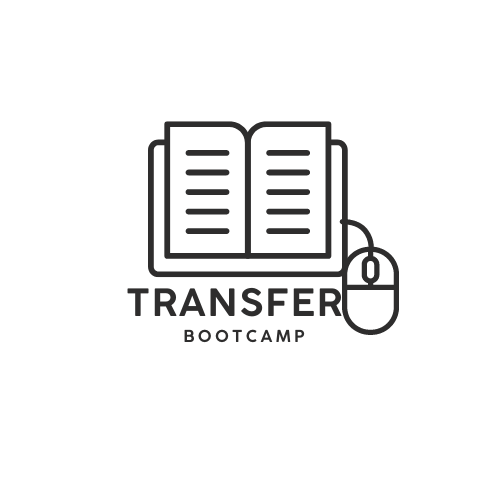Benefits of Mobile Learning Apps
Mobile learning apps are revolutionizing the educational landscape, offering you a variety of compelling benefits that cater to the modern learning environment. As an educator, corporate trainer, or e-learning professional, understanding these advantages is key to enhancing your digital education platforms and tools.
Engaging Learning Experience
Mobile learning apps are designed to provide you with an engaging and interactive learning experience that surpasses traditional classroom sessions. With features like multimedia content, gamified elements, quizzes, videos, and simulations, these apps enhance motivation, retention, and the overall learning experience. For instance, gamification features allow learners to pass different levels to access courses, adding a fun and competitive edge to the learning process. This approach not only makes learning more enjoyable but also encourages active participation and deeper engagement with the material.
By integrating gamification in e-learning and interactive e-learning modules, mobile learning apps cater to a diverse range of learning preferences and styles, ensuring that every learner finds a method that resonates with them.
Cost-Effectiveness and Accessibility
One of the most significant benefits of mobile learning apps is their cost-effectiveness and accessibility. These apps eliminate the need for physical textbooks and reduce paper waste, thereby offering a more affordable alternative to traditional school-based education. This cost-saving aspect is particularly beneficial for students and institutions looking to manage educational expenses effectively (eLearning Industry).
In addition to the financial advantages, mobile learning apps also enhance learning accessibility. They cater to students with disabilities by providing features such as text-to-speech for visually impaired learners, resources for students with dyslexia, and self-paced learning options for those who prefer to learn outside the confines of the classroom. This inclusive approach ensures that all learners have equal opportunities to access quality education, regardless of their personal circumstances or learning needs.
Furthermore, with the widespread availability of smartphones and tablets, mobile learning apps can be accessed anytime and anywhere, breaking down geographical barriers and enabling continuous learning on the go. This level of convenience is essential for supporting lifelong learning and accommodating the busy schedules of modern learners.
By leveraging e-learning content management systems and cloud-based e-learning solutions, you can further expand the reach and impact of your educational offerings, providing learners with the tools they need to succeed in an increasingly digital world.
In summary, mobile learning apps offer a dynamic and cost-effective way to enhance the educational experience. They provide a platform that is not only engaging and user-friendly but also accessible to a wide audience, making education more inclusive and adaptable to the evolving needs of learners. Whether you’re involved in K-12 education, higher education, or corporate training, incorporating mobile learning apps into your strategy can significantly improve the effectiveness and reach of your educational programs.
Enhancing Learning with AI
Artificial Intelligence (AI) is revolutionizing the way you experience education through mobile learning apps. By adapting to your individual learning style and pace, AI creates a more efficient, personalized learning journey.
Personalized Learning Paths
AI-powered mobile learning apps take your unique learning preferences and performance into account to craft a personalized learning path that’s just for you. By analyzing a wealth of data, including your academic achievements and study habits, AI can recommend study materials and assignments that resonate with your learning style, helping you to grasp concepts more effectively and efficiently.
These intelligent systems can identify areas where you’re excelling or struggling, and adjust the curriculum accordingly. This means that if you’re a whiz at algebra but find literature challenging, your learning path will evolve to provide you with more support where you need it, ensuring a balanced and comprehensive educational experience.
For example, mobile learning apps can generate customized quizzes and interactive assignments that challenge you just enough to keep you engaged without feeling overwhelmed. These dynamic resources are designed to keep you motivated and on track toward reaching your full potential.
Explore personalized learning path generators to find out how AI can tailor your educational journey.
Tailored Recommendations and Feedback
AI doesn’t just stop at customizing your learning materials; it also provides you with tailored feedback that’s crucial for your growth. Using AI, mobile learning apps can assess your responses and progress, offering constructive feedback that’s specific to your performance (Zazz).
This feedback isn’t generic—it’s as unique as you are. If you’ve excelled in a particular module, the app might suggest more advanced materials to keep you challenged. Conversely, if you’re having difficulties, the app can provide additional resources or recommend revisiting certain topics to reinforce your understanding.
Moreover, AI can keep you engaged through adaptive assessments that are aligned with your current level of knowledge. This personalized approach not only enhances your learning experience but also maximizes learning outcomes by addressing your individual strengths and weaknesses.
To delve deeper into how AI can enhance your feedback loop, check out ai-powered learning recommendation systems for innovative insights.
By incorporating AI into mobile learning apps, you’re not just using a tool for education—you’re engaging with a responsive learning partner that understands your educational needs and adapts to help you succeed. Whether you’re an educator looking to provide personalized education, or a learner seeking to maximize your potential, embracing AI in mobile learning apps can lead to more rewarding and effective learning experiences.

[…] learning often relies on digital tools and platforms, such as e-learning authoring tools and mobile learning apps, which require investment and […]
[…] journey, consider integrating additional e-learning tools such as virtual classroom platforms, mobile learning apps, and gamification in e-learning to complement the scenario-based learning modules. This blend of […]